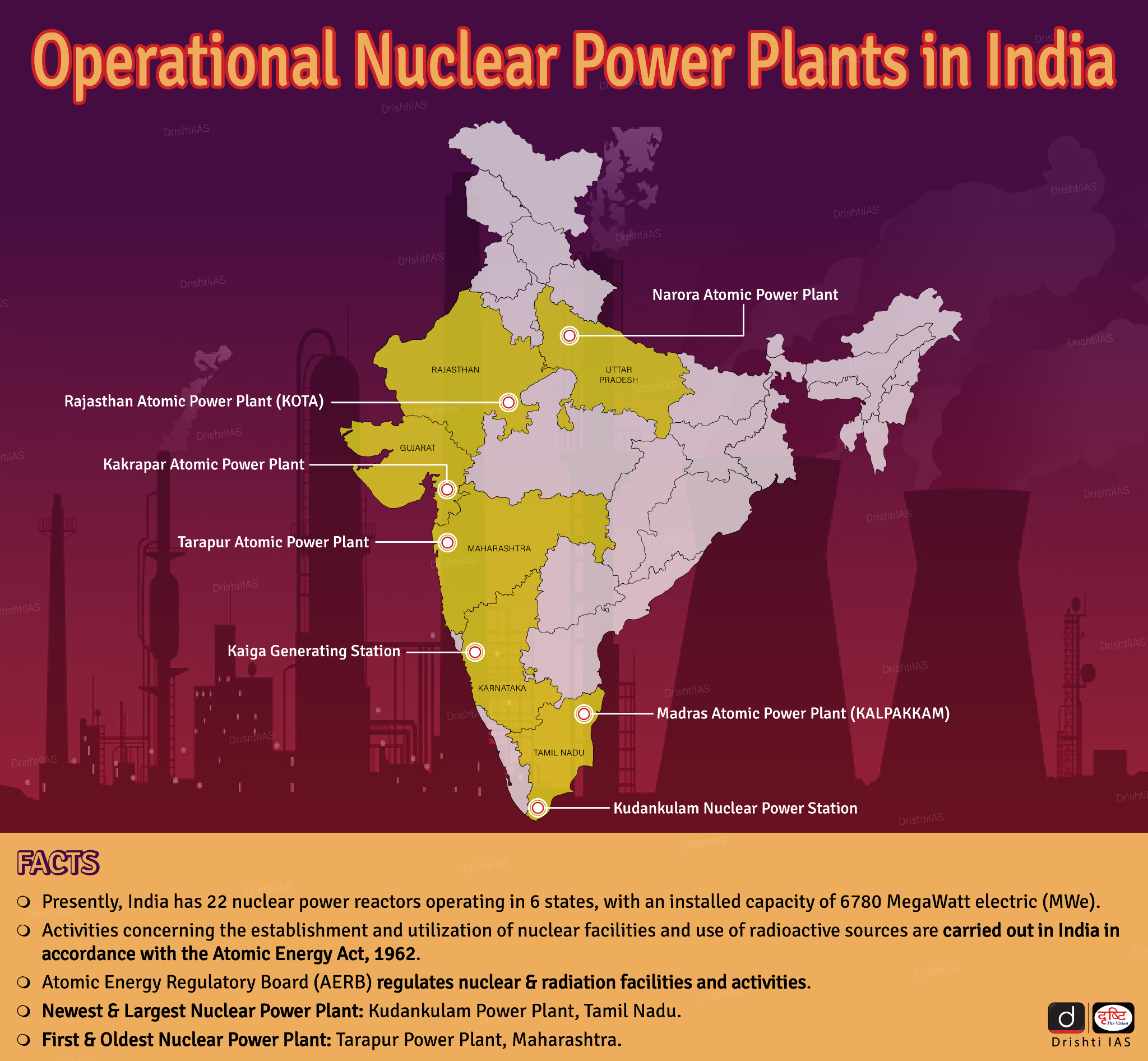Rapid Fire
Operational License for Indigenous 700 MWe PHWRs
- 08 Jul 2025
- 2 min read
The Atomic Energy Regulatory Board (AERB) granted an operation licence for two indigenously developed (KAPS-3 and KAPS-4) 700 MWe (Megawatts electric) Pressurised Heavy Water Reactors (PHWRs) at the Kakrapar Atomic Power Station (KAPS) in Gujarat.
- AERB, after 15 years of rigorous multi-tiered safety reviews, granted a 5-year Licence for Operation to the Nuclear Power Corporation of India Limited (NPCIL).
- This marks a significant boost to NPCIL’s plan of building 10 more PHWRs of 700 MWe.
- NPCIL owns and operates all nuclear power plants in India, except PFBR variants (owned by The Indira Gandhi Centre for Atomic Research).
- India currently operates 15 PHWRs of 220 MWe, 2 PHWRs of 540 MWe, and a 700 MWe reactor at Rawatbhata, Rajasthan.
- PHWRs are a type of nuclear reactor that use heavy water (deuterium oxide, D₂O) as both a coolant and moderator, while natural or slightly enriched uranium serves as fuel.
- AERB is India's national regulatory authority responsible for ensuring the safe use of nuclear energy and radiation technologies in the country.
- Established in 1983 under the Atomic Energy Act,1962, AERB functions as an independent body under the Department of Atomic Energy (DAE).
- India’s nuclear power capacity is currently 8.18 GW (2024), with targets set at 22.48 GW by 2031–32 and 100 GW by 2047.
| Read More: India’s Nuclear Programme |







